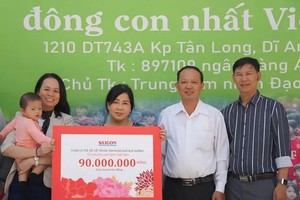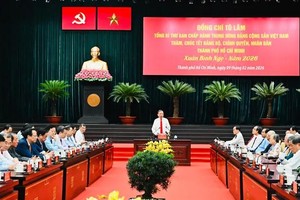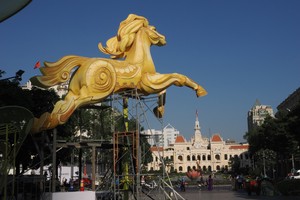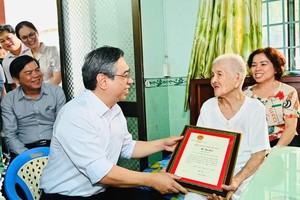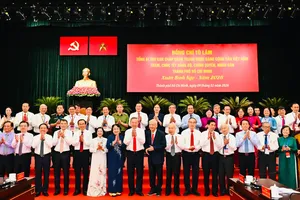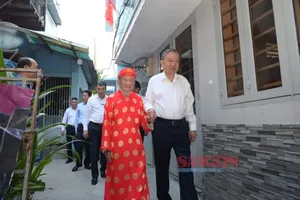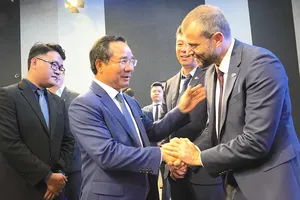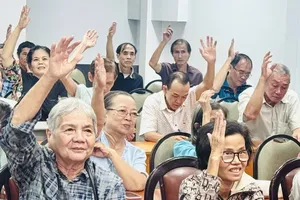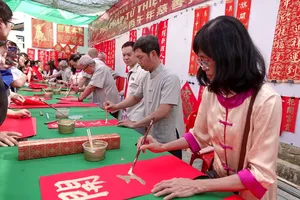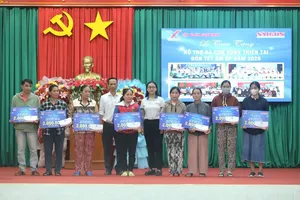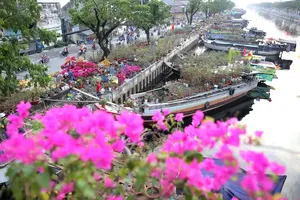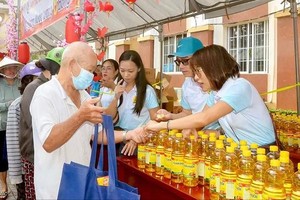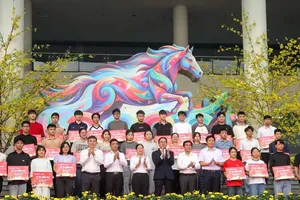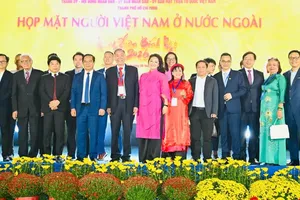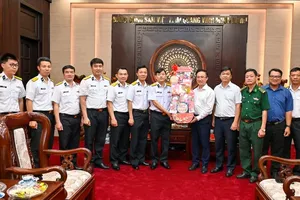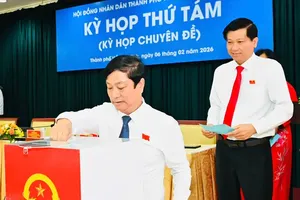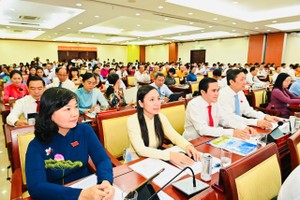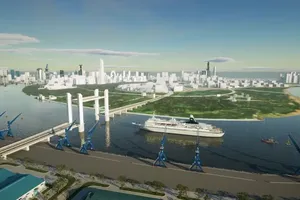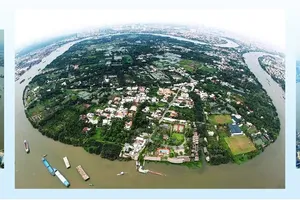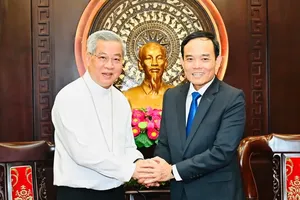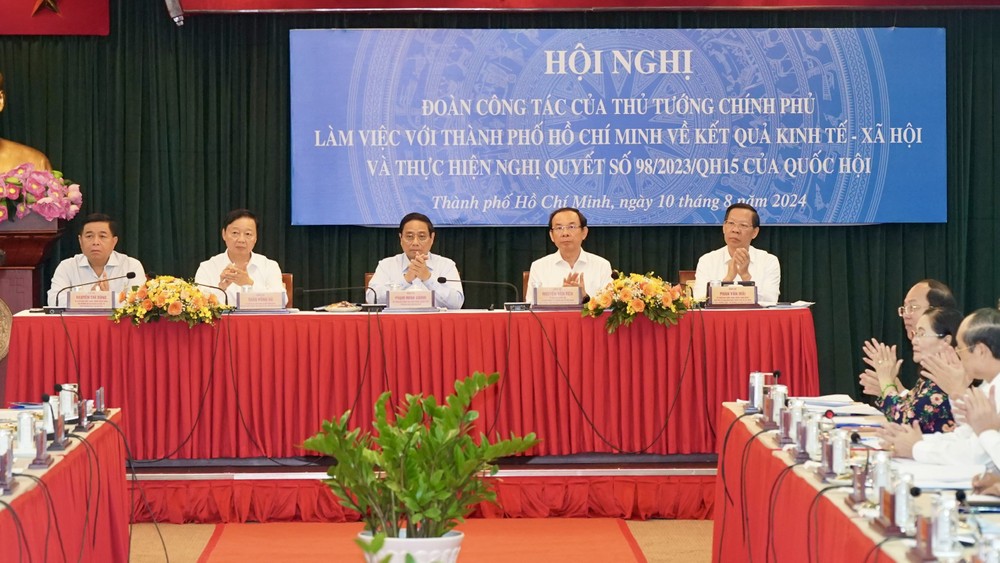
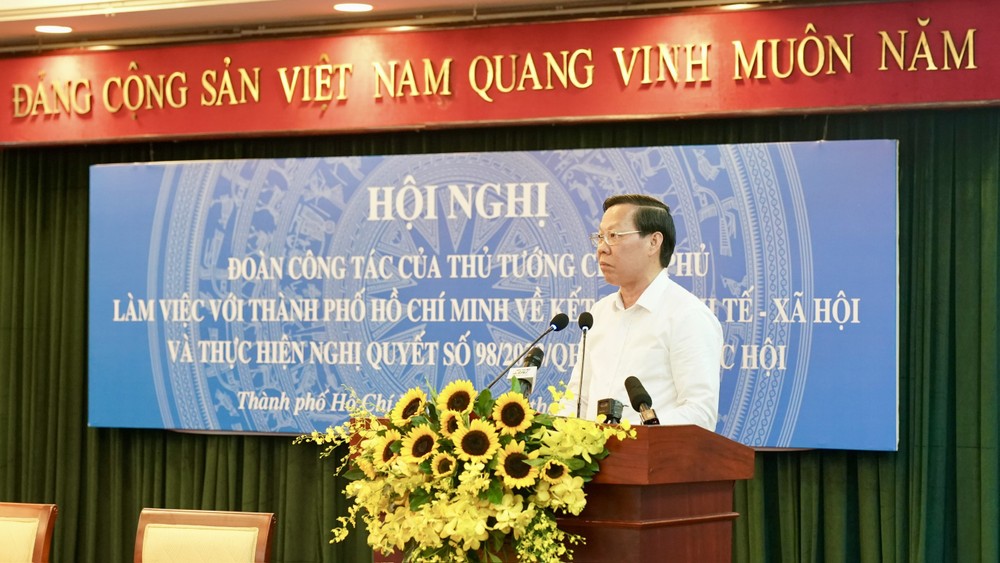
Chairman Phan Van Mai made the revelation at this morning’s working session with the delegation led by the Prime Minister to discuss the results of economic and social development and the implementation of Resolution 98/2023/QH15 by the National Assembly. This resolution aims to pilot certain mechanisms and special policies for the development of Ho Chi Minh City.
Despite the complex global economic situation, the city’s policies and implementation measures have led to positive outcomes. Ho Chi Minh City has been focusing on synchronizing efforts to accelerate the progress of key projects and addressing legal obstacles.
The city’s efforts were rewarded when legal bottlenecks were gradually removed. Construction workers have been working during holidays on critical transportation projects, including Belt Road 3, the An Phu traffic interchange in Thu Duc City, the road connecting Tran Quoc Hoan and Cong Hoa streets in Tan Binh District, and the expansion of National Highway 50.
Additionally, the city has submitted its urban planning documents from 2021 to 2030, with a vision toward 2050, and completed adjustments to the overall city plan up to 2040 with a vision toward 2060.
Collaborative programs with other localities continue to be effective, and cultural and artistic activities are being organized to celebrate significant occasions. Administrative reform, social welfare, and employment support remain priorities, and disease control measures are being maintained.
In July, various economic sectors continued to achieve positive results. Total retail sales of goods and services increased by 10.6 percent. Export turnover was estimated to increase by 10 percent; import turnover increased by 5.9 percent. The Index of Industrial Production (IIP) rose by 6.2 percent year-on-year. The number of newly established businesses increased by 8.4 percent. State budget revenue reached VND309 trillion, reaching nearly 64 percent of the annual estimate, up 17.31 percent year-on-year.
The tourism sector continued to maintain growth and achieve high growth rates; total tourism revenue increased by 15.4 percent; international visitors to Ho Chi Minh City increased by 30.3 percent. The volume of public passenger transport increased by 20.8 percent.
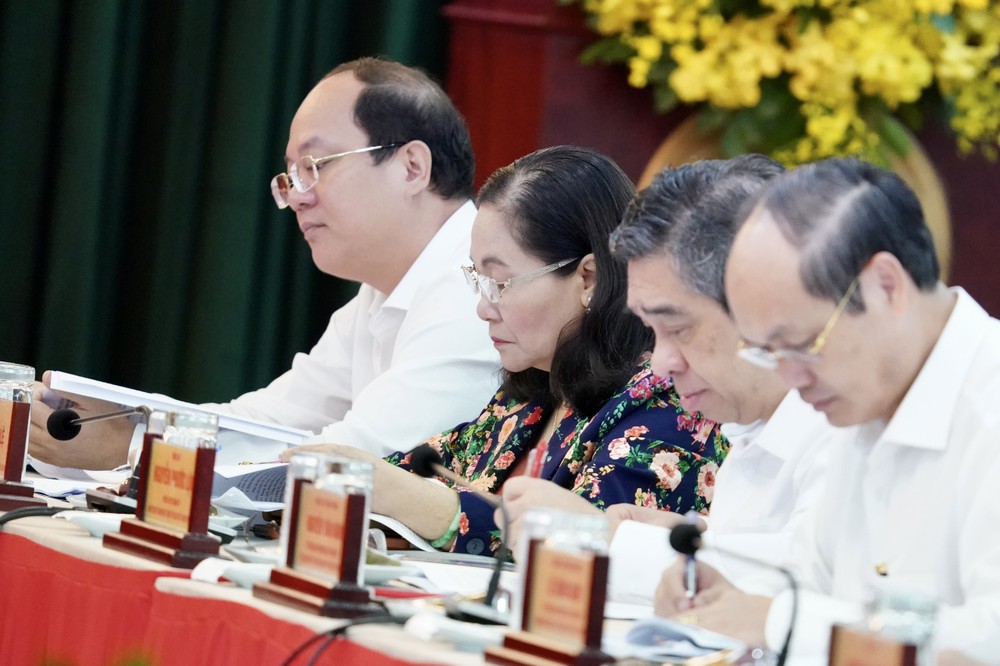
The Chairman affirmed that Resolution 98 is an important legal tool for institutionalizing, motivating, and improving the efficiency of the civil service in addition to addressing bottlenecks, promoting the process of economic restructuring and urban infrastructure development, and initially yielding some positive outcomes.
Specifically, Ho Chi Minh City prioritized allocating VND2,796 billion for the poverty reduction program in 2023 and has disbursed 100 percent to nearly 39,000 people. In 2024, Ho Chi Minh City allocated VND998 billion for the poverty reduction program and has disbursed 100 percent to 13,658 borrowers under the poverty reduction program.
Ho Chi Minh City also allocated VND1,500 billion of public investment capital to support interest rates for investment projects that are lent by HCMC State Capital Investment Corporation (HFIC) in priority areas of socio-economic development.
Along with that, some VND2,900 billion was allocated for the Ho Chi Minh City - Moc Bai expressway project. Ho Chi Minh City also issued a list of projects calling for investment under the public-private partnership method in the culture and sports sector with 23 projects having a total investment of nearly VND22,400 billion.
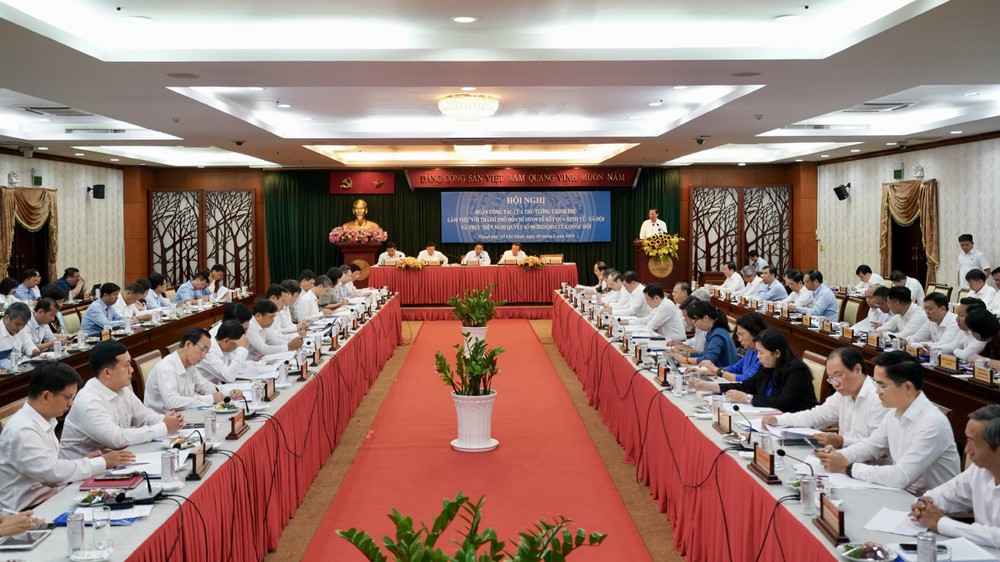
The Chairman of the Ho Chi Minh City People’s Committee remarked that the city has made significant efforts to accelerate the disbursement rate of public investment capital. However, the results in the first 7 months of 2024 have not met the planned requirements.
During a conference, the Chairman recommended that the Prime Minister pay attention to addressing seven key issues. These include promptly approving decisions to adjust the investment policies for Phase 2 of the Environmental Sanitation projects and Metro Line 1, which serve as the basis to do next procedures to build the projects in line with commitments to foreign donors.
Additionally, the Chairman suggested that the Prime Minister approve the specialized Industrial Park for Medicine and Pharmaceuticals in Ho Chi Minh City as a priority investment project.
Furthermore, the Central Government should continue to allocate central budget funds to support the expansion of Saigon High-Tech Park, similar to the previous support, 30 percent from the central budget and 70 percent from the city budget.
Lastly, the Chairman called for early approval of the investment policy for the International Transshipment Port in Can Gio, the urban railway system development plan, and the establishment of the Vietnam International Financial Center in Ho Chi Minh City.
